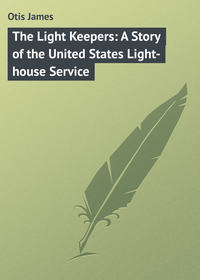 полная версия
полная версияThe Adventures of a Country Boy at a Country Fair
"That is something none of us will ever know," Mr. Sweet replied, solemnly, and then, as if to change the mournful subject, he asked: "How did business pan out to-day, Teddy?"
"I'll count up. We must have come pretty near to what you predicted; but we would have done a great deal better if it hadn't been for the big row. That made us lose at least an hour, to say nothin' of havin' six canes broken just when we needed every one in order to make a good show."
Then Teddy and Tim emptied the contents of their pockets on a piece of canvas, and the other occupants of the tent waited patiently for the result to be announced.
"It's ninety-four dollars and forty-five cents," the former said, after counting the money twice as if doubtful of the first result. "That's a big sum of money, but there's no chance of a mistake."
"You can figure that the row cost you six dollars," Mr. Sweet replied, puffing vigorously at his pipe. "I haven't been 'tendin' out on fairs these eight years without bein' able to name the amount of such a business as yours."
"We'd have had twenty-five more but for that row," Tim said, decidedly.
"You're wrong there, my boy," and the proprietor of the museum wore an air of one who "knows it all." "That is about as much as two boys can take in, an' you don't want to kick, for I've seen lots of fakirs come on to a fair ground with a better cane-board than yours an' not get expenses. Be thankful for what you've earned, an' hope that you can pay expenses to-morrow, for there won't be any too much money floatin' around after such a business as we've had to-day."
"I'm more than satisfied," Teddy replied, as he set aside the amount due Tim, and the latter appeared to be more than contented with having earned nine dollars and forty-four cents so easily.
"You can suck your thumbs from now out," the barker said, philosophically, "for the backbone of trade has been broken, an' the Peach Bottom fair is already numbered with the things of the past."
"Don't you think we'll do anything more?" Teddy asked.
"Oh, yes, there'll be a little to pick up until to-morrow night, but it won't amount to anything near like what has already been done, although it'll be clear profit."
"Since I am more than satisfied, there's no chance of being disappointed," Teddy replied, and at that moment the head of a stranger appeared between the flaps of canvas.
"Is there a boy named Teddy here?" the newcomer asked.
"Well, what do you want of him?" and Mr. Sweet sprang to his feet as if anticipating trouble.
"Nothing more than what Hazelton wanted me to say," was the reply, as the stranger entered, evidently thinking his search was at an end.
"And what is that?" the proprietor of the museum asked, motioning Teddy to remain silent.
"There's no need of all this secrecy with me, for I'm Hazelton's partner in everything except the give-away game," the stranger said, with a laugh. "It appears a man has been arrested by a party whom this boy Teddy knows, and I'm to say that he is to come to jail very early to-morrow morning."
Even now Mr. Sweet's suspicions were not allayed, and he asked, cautiously:
"Could you tell me what he's wanted for?"
"Lawyer Harvey will be there, and is going to talk with him where Hazelton can hear what is said."
"Is that all?"
"Everything; and if you see the boy, can I depend on your repeating the message?"
"Under the circumstances there can be no harm in taking every precaution," the proprietor of the museum replied, "and if your errand is finished, I may as well say that this is the boy Teddy whom Hazelton sent you to see."
"That's all right; there was no need of pointing him out; but since you have done so, I simply want to ask if he can spare the time to do as Hazelton and the lawyer wish?"
"Of course I can," and now Teddy spoke for himself. "Say that if nothing happens I'll be there."
"Have you heard whether your uncle has succeeded in getting a warrant?" the stranger asked.
"No; but Mr. Harvey seemed to think he might be able to do so, and I don't want to make any promises that can't be carried out."
"Then I'll count on your being there, but since leaving the jail I've heard enough to warrant my advising you to remain under cover to-night."
"Why?"
"Those fellows who started the fight when you got away with the money are swearing vengeance. I don't think it's likely they'll attack the tent, for, owing to the representations made by the lawyer, there'll be a big force of constables on duty to-night; but if you should venture outside the grounds it might be impossible to keep any engagement in the future."
"I wasn't thinkin' of leaving here," Teddy replied; but the mere fact that he ought not do so made him feel very uncomfortable.
"I couldn't be in any worse fix if I had committed some big crime," he said, bitterly, "and it is tough to feel like a criminal when a fellow is only trying to earn honest money."
"It isn't the rule that honest people fare the best," the stranger replied, with a laugh; "but I hope you'll come out on the top of the heap. At all events, my business here is finished and I'll go."
The folds of canvas dropped behind him, and Mr. Sweet said, musingly:
"It beats all how you boys have succeeded in getting yourselves mixed up in this affair. If I didn't know all the circumstances I'd say there must be some fire where there is so much smoke."
"The smoke isn't of our makin', an' Teddy's uncle can be blamed for the most of it," Dan said, angrily. "I only wish he was here to know my opinion of him."
"Are you talkin' about me?" Uncle Nathan asked, as he pushed aside the canvas and entered without so much as asking permission.
"That's exactly what I was doing," Dan replied, without any show of fear, "an' if you've been sneakin' 'round to listen, there's no need of my tellin' over ag'in jest what I think of a man who tries to frighten an honest boy into givin' up half of what he has made."
"An honest boy?" the old man repeated, with a sneer, and Teddy whispered to his friend:
"Don't say anything to make him angry, for I'll only get the worst of it."
"Of course you will," Uncle Nathan replied, having overheard the words. "When an ungrateful wretch like you conspires to rob the hand that has fed him he must expect to get the worst of it."
"I never took from you the value of a cent," Teddy said, stoutly, and Dan cried as he sprang to his feet:
"If there has been any attempt at robbery, you're the guilty one, for you've tried to steal half the money he made by threatening to have him arrested if he didn't divide his profits."
"That was only a business proposition," the old man replied, not in the least abashed, "and he has aided others in stealing from me."
"What do you want here?" Mr. Sweet cried, angrily. "This is my tent; I have paid for the privilege of putting it upon these grounds, and have the right to prevent such old hypocrites as you from entering without paying an admission."
"Look out that you do not come within reach of the law," Uncle Nathan replied, threateningly, stepping back quickly, as if expecting an attack. "I am here armed with the right to take this boy, and shall exercise it despite all that may be said. Come in, Mr. Officer."
In response to this call a constable entered, and Teddy's heart sank within him, for he understood that the long-deferred arrest was about to be made.
"There is your prisoner," the old man said, vindictively, as he pointed to the boy, "and the sooner you take him to jail where he belongs the sooner we shall be rid of a viper."
Teddy's grief and fear were so great that he could not speak, and even Dan appeared to have been made dumb by this show of authority; but Mr. Sweet was somewhat accustomed to such scenes, and he demanded:
"Show me the warrant. I do not propose to let any one be taken out of my tent by such an old reprobate as that until I am satisfied it is done under the sanction of the law."
"Convince yourself," Uncle Nathan replied, as the constable held out a folded document. "That will show under what authority we act."
Sweet read it carefully, and handed it to the officer as he said to the old man:
"This shows that the constable has the right to take Teddy to prison; but as certain as there will be a sun in the sky to-morrow so certain will I aid him in making you suffer for doing this thing. You know he had nothing to do with the burglary committed at your store, and have only had this issued in the hope of defrauding him of what he has earned honestly."
"Talk is cheap," Uncle Nathan said, impatiently. "Officer, take your prisoner away unless you count on stayin' here all night."
The short parley between the proprietor of the museum and the accuser gave Teddy time to think of what the lawyer had said, and he added, as the constable approached him:
"I demand to be first carried to Deacon Jones'."
"Now what kind of a bee have you got in your bonnet?" the old man cried, displaying both surprise and fear. "I say you are to go to jail, an' that settles it."
"If he wants to see the deacon I'm bound to take him there," the constable said.
"Who's been makin' sich foolish talk to you?" Uncle Nathan screamed.
"Lawyer Harvey told me what the law was, an' I don't intend to get into any fuss by deprivin' a prisoner of his rights," was the stolid reply.
CHAPTER XXV.
ON BAIL
When Uncle Nathan learned that the celebrated lawyer had made preparations for this move on his part he was literally beside himself with rage, and vowed that the warrant should be served and the prisoner taken to jail immediately, or he would see to it that the constable was deprived of his commission without delay.
"I've served the warrant," the man said, quietly, "an' now the prisoner is in my custody. You have no more to say what shall be done with him than that goat, so shut your mouth."
"I'll shut yours so close it won't be opened again for a month!" the old man screamed. "Do as I tell you, or take the consequences."
"And I'm goin' to give you the same advice," Mr. Sweet cried, as he advanced toward Uncle Nathan threateningly. "Now the boy has been arrested, you are an intruder here, an' I'll give you thirty seconds in which to get out; after that we'll make an example of such a reprobate."
"I'll go when I get ready, an' not a minute before. Lay a hand on me an' I'll have a warrant for you."
"If you can get it, well and good. I now order you out for the last time. In thirty seconds I'll guarantee you won't be in condition to walk."
While their employer had been speaking the barker and the clown silently ranged themselves by his side, ready for any commands which might be given, and the infuriated old man had sufficient sense left to let him understand it would be unsafe to linger.
"I'll serve you out before this thing is ended," he cried, shaking his fist in impotent rage as he went toward the flap, and Dan, who could control himself no longer, replied:
"You'd better begin on me, for I'm goin' to tell this thing to everybody who comes to the fair to-morrow, an' from what I've heard it wouldn't take much coaxin' to get the band from the Run up here, so's I could sing it. You're havin' a good time now; but there'll be a different side to the matter to-morrow."
Mr. Sweet had followed Uncle Nathan so closely, literally turning him out, that he could not reply while inside the canvas; but once in the open air, he made threats that would have frightened any one who did not know the motive by which they had been inspired.
Meanwhile the constable appeared disposed to take matters in the most comfortable manner. He asked Teddy why he wished to see Deacon Jones, and the boy said:
"I don't know; but Mr. Harvey told me that if anything happened to-night I was to see the deacon."
"Then we'll go there. Are you ready?"
Teddy thought of his money, and, fearing lest it might be taken from him, asked if he could hand something to Mr. Sweet.
"I think not," was the undecided reply. "The deacon will know, an' whatever he says I'll stand by."
"Don't bother about anything just now," the proprietor of the museum said. "We'll all go with you, an' there'll be plenty of time to make necessary arrangements before you're taken to jail."
Although the lawyer had assured him he could be involved in no serious trouble, the mere fact that he was under arrest sufficed to make Teddy wretched, and like one under sentence of death, he prepared to accompany the constable.
Dan and Tim intended to join the party, as was shown by their remaining very close to the prisoner, and only the barker and the clown were left to care for the tent.
Uncle Nathan was met on the outside, and he immediately began to insist that the boy be taken to jail at once; but the officer paid no attention to his ravings.
"If you don't hold your tongue I'll knock the whole top of your head off," Mr. Sweet whispered, brandishing his fists in the most threatening manner, and the old man cried, excitedly:
"Mr. Officer, I call upon you to bear witness that this man is threatening my life, and insist that you protect me from insult."
"I've nothing to do with you," the constable replied, with a laugh. "The warrant has been served, an' all you've got to do is hold your horses till the case is called up in court."
"Wait till I get home once more, an' then we'll see that he's got a good deal to do with the case," Tim cried. "I'll spend every minute from then for a week tellin' the folks that he only did this to make Teddy give up half of what he made, an' it'll be a pretty poor kind of a chump who'll do any more tradin' at his store."
Uncle Nathan stepped toward the boy who had spoken so boldly as if he would inflict the direst punishment then and there; but he probably realized that this would prejudice his case, and contented himself by saying:
"We'll see whether the people at the Run will believe a couple of boys who have been in league with burglars, for you mustn't forget, Tim Jones, that I have proof you helped Teddy to carry away the burglar's money."
"If it'll do you any good I'll own up to the fact now," the boy replied. "It can't be so bad to do that as it is to arrest your own nephew because he won't give you half his money."
"Don't say anything more," Teddy whispered to his friend. "It's only makin' matters worse, an' he's got the upper hand of us all jest now."
"I don't know whether he has or not," the valiant Tim replied; "but at the same time it'll do him a world of good to let him hear the truth."
At this point Uncle Nathan appeared to understand that he was not coming out victor in this battle of tongues, and he wisely held his peace, saying not another word until the little party arrived at the home of Deacon Jones.
The manager of the fair was resting after a particularly hard day's work. More than one of the citizens of Peach Bottom had openly said he was responsible for the riot by allowing liquor to be sold on the grounds, and his greeting of the visitors was not calculated to assure the frightened Teddy.
"Well, what do you want?" he cried, roughly, as they entered his library. "If it's anything concerning the fair I won't open my mouth. A man can't be driven to death with work and then disturbed at all hours of the night, simply to give the fools in this town a chance to make trouble."
"All I know about it is that I arrested this boy, and he insisted on being brought to you, saying it was Lawyer Harvey's advice," the constable began, and the angry deacon immediately began to appear interested.
"Is this your nephew, Nathan?" he asked of the old man, who now had a smirk of confidence on his face.
"I'm sorry he is, deacon, an' after I set him up in business he goes ag'in me by givin' information to burglars, who rob me."
"And you have had him arrested?"
"I felt obliged to in the interest of society."
"That's a lie," Mr. Sweet interrupted, angrily. "He tried to make the boy pay him half he earned on the fair grounds, and has done this thing only because Teddy refused."
"We won't go into the details of the case, because I am not a magistrate," the deacon replied, with a majestic wave of the hand. "Mr. Officer, tell the 'Squire that I am prepared to go bail to any amount, and ask if the business can't be conducted here, for I'm too tired to go out of doors unless it is absolutely necessary."
"What?" the old man screamed. "Will you answer for that little villain's appearance at court?"
"That's what I said, Nathan. This affair is none of my business other than I have stated; but I must say you are goin' a leetle too far, not only in my opinion, but in that of others, an' it may prove a costly job for somebody before it's finished."
The old man was literally speechless.
He could not understand why the deacon should have turned against him so suddenly, and the last words made him decidedly uneasy.
He was not to be silenced without a struggle, however. After the first surprise had died away he said, with a comical assumption of dignity:
"I will see whether I'm to be browbeaten in this manner. The 'Squire does not dare to release the boy on bail, and I shall tell him so."
With these words he left the house hurriedly, and the constable said to the deacon:
"If you will write a line to the 'Squire, saying that you're ready to go bail, I do not think there will be any necessity of troubling you again to-night."
This suggestion was immediately acted upon, and the weary manager of the fair penned the following words:
I am ready to enter security to any amount for the appearance at court of Edward Hargreaves, and if you should not consider my bond sufficient, I am empowered to say that John Reaves, of Waterville, will add his name, therefore there can be no good reason for committing him to jail, since we are both responsible for the prisoner until the bond can be executed.
A. JonesHaving received this the constable departed with the prisoner and his friends, and once on the outside he said, confidently:
"The matter is settled, no matter how much old Nathan may rave. Both Mr. Reaves an' the deacon have got the 'Squire by the nose, and he must dance to their fiddlin'."
That this assertion was correct Teddy realized a few moments later when he was ushered into the 'Squire's dining-room, and the latter, without paying the slightest attention to the prisoner, said to the officer:
"I have just heard that you served the warrant I issued, and then took the boy to Deacon Jones' house. Is that correct?"
"Straight as a string, 'Squire. Lawyer Harvey told him if anything happened to go there, an' I thought he had a right to look up bail before being lugged off to jail. Here's what the deacon's got to say about it."
The 'Squire took the paper which the officer held out, and after reading it, said benignly:
"You were quite correct in doing what you did, Mr. Constable. This is quite sufficient guarantee that he will be produced when wanted, and you may let him go. Give me the papers, and I will indorse them."
After this formality had been gone through with the constable said to Mr. Sweet:
"That settles the matter so far as Teddy is concerned, and with such men as the deacon, Mr. Reaves, and Lawyer Harvey to back him, I don't believe old Nathan will make any too much out of this job."
"You are free to go where you please," the 'Squire added, and the young fakir with his friends left the house, wondering very much at the amount of influence which, unsolicited, had been exerted in Teddy's behalf.
As for the boy himself, he was far from feeling comfortable in mind. Unless the burglary could be brought home to Long Jim it did not seem possible that Hazelton could be set free, and this last was absolutely necessary in order to establish his own innocence.
It was a great consolation for him to be with such good friends, however, and each in turn tried to cheer him, but without success until Mr. Sweet said:
"There's no question of your getting out of the scrape with flying colors, and to celebrate I'm goin' to give a regular dinner party to every decent fakir on the grounds. Come over, boys, an' help me get ready. Business has been so good to-day that I can afford to indulge in a little extravagance."
CHAPTER XXVI.
THE FAKIRS' PARTY
The idea of a party in the museum tent, where there would be no guests save fakirs, struck Teddy as being very comical, and he laughed heartily despite the fact that he was still virtually a prisoner in the meshes of the law; but at the same time he did not think Mr. Sweet was really in earnest when he made the proposition.
It was not many moments, however, before he understood that the party was to be given in the most elaborate manner possible.
On arriving at the tent Mr. Sweet sent the bouncer out with invitations to such of the fakirs as remained on the grounds all night, or lived in the immediate vicinity, and at the same time the clown started for the town in order to purchase refreshments.
"Now, you boys are to take right hold an' help the best you know how," the proprietor of the museum said as he pulled off his coat and vest preparatory to making ready for the feast. "If them as comes want to sit down it must be on the ground, owing to the lack of chairs, therefore it don't make much difference if the table is a trifle high."
To the surprise of the boys he proceeded to convert the wagon into a "festal board" by first pulling it into the center of the tent, and then removing the sides. Over the floor of this newspapers were spread, and two plates, three forks, one knife, and four tin dippers were placed on the impromptu cloth.
"The provisions will be cut ready for eating," Mr. Sweet explained, "so one knife must serve for all hands, and it won't hurt any of the crowd if they're obliged to take turns using the dippers."
The clown returned before the guests began to assemble. He brought cold sausage, sliced ham, cold fried potatoes, sweet crackers, cake, pie, and a quantity of lemons and sugar.
Contrary to his expectations, Mr. Sweet did not think this assortment sufficient for the kind of a dinner he proposed to give, and the messenger was forced to return in search of cheese, pickled pig's feet, sardines, and milk for the coffee.
Matters were in a decided state of confusion when the first of the guests arrived. Mr. Sweet, not troubled by the absence of dishes, had placed the various articles on the wagon-table in the brown paper coverings as they had been received, and it was upon his skill as a maker of coffee that he based his reputation as a host.
Therefore everything was neglected for this one important thing, and the proprietor was standing over the oil stove with a look of grave responsibility on his face when the owner of the envelope game and his assistant arrived.
"The boys will take care of you," he said, hurriedly, bending over the huge pot to inhale the odor, in order to know exactly how the berries were adapting themselves to the infusion, and, much to his surprise, Teddy found himself the one especial feature of the party.
All on the ground had evidently heard of his arrest, for each new arrival asked concerning the events of the evening, and, what was more to the purpose, so far as he was concerned, all seemed to think his troubles were only temporary.
"You'll come out of it all right," the manager of the largest sandwich booth said, confidently, as he entered with his hat on one side of his head and a cigar held in his mouth at an angle of forty-five degrees. "I heard of your uncle last year, when he tried to make trouble for a friend of mine in the spittoon game, an' you can bet your bottom dollar that the people here are not going to take much stock in what he says."
"It seems they did, so far as to issue a warrant for my arrest," Teddy replied, with a mirthless smile.
"But that won't amount to anything. I hear you have got John Reaves as a friend, an' he comes pretty near runnin' things to suit himself in Peach Bottom. He helped my friend out of the scrape your uncle put him into, an' folks say there's no love lost between him an' Nathan Hargreaves."
"I want to get out of my trouble simply on the ground that I am not guilty," Teddy replied. "If I am charged with aiding burglars, there's precious little consolation in being set free simply because people do not like the man who made the charge."











